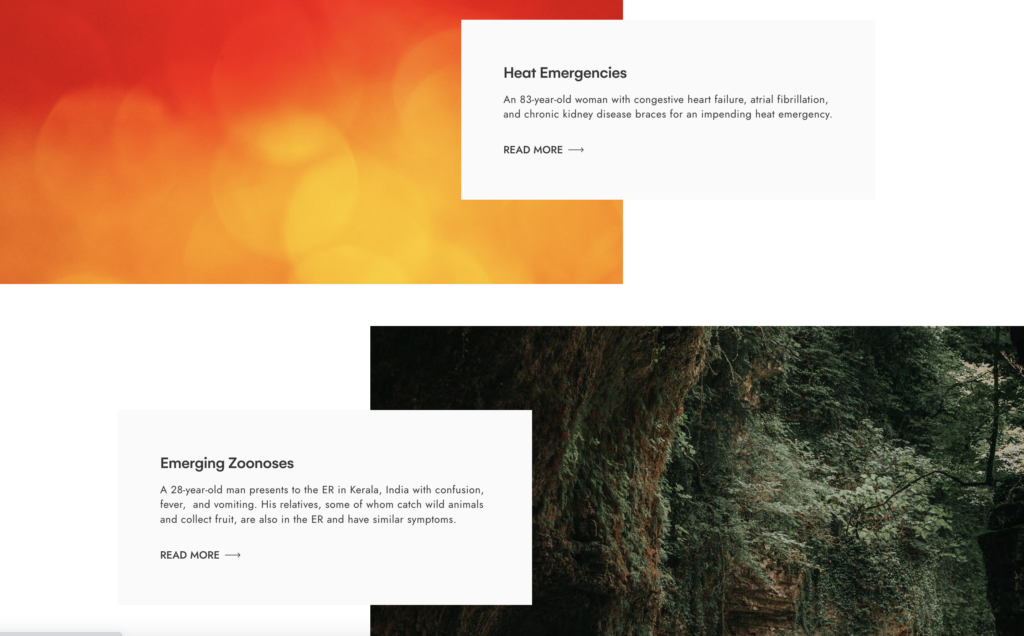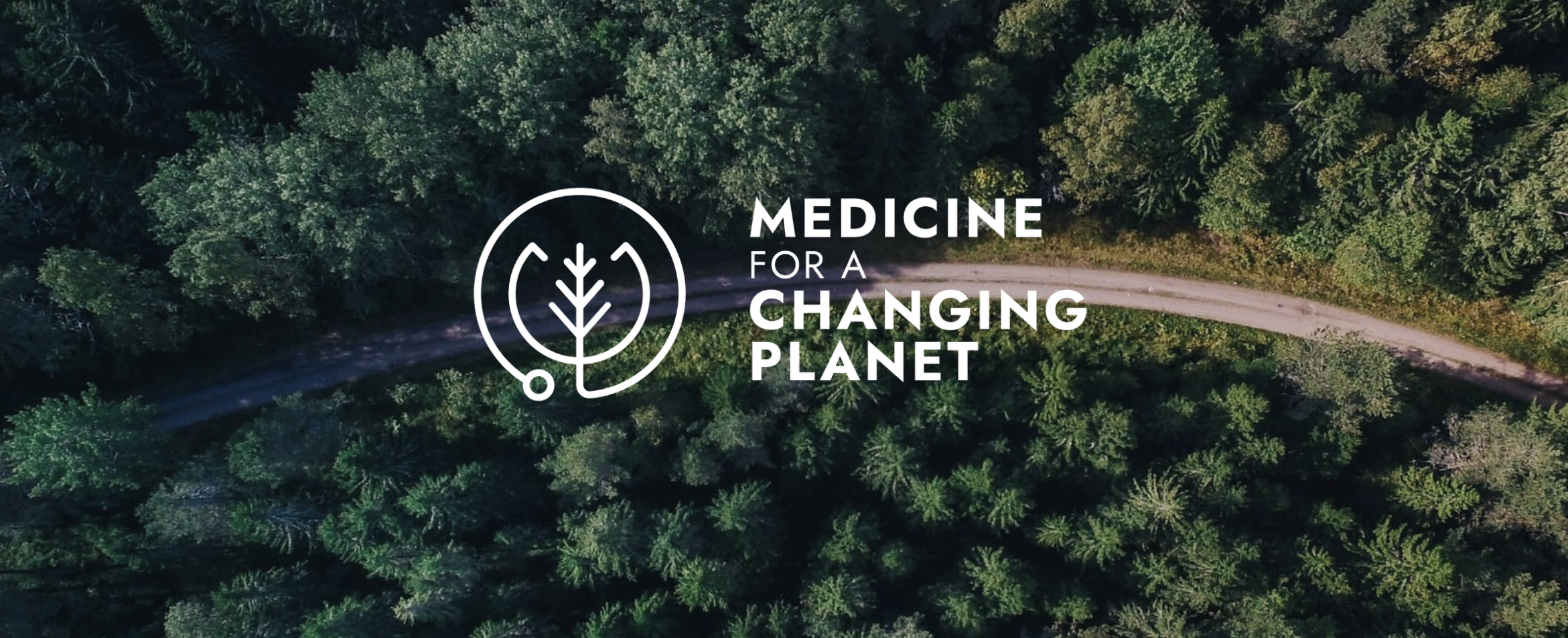Published: 09/05/2023
By Erika Veidis, Planetary Health Program Manager
Climate change, pollution, biodiversity loss, and other environmental changes are creating new disease patterns, threats to mental health, malnutrition, and safety risks. These challenges are unprecedented, with impacts felt across the world – most acutely in lower-resource settings.
What health professionals are seeing in hospitals and clinics is shifting – requiring new approaches to diagnosis, treatment, and advocacy.
To address this growing need, the Stanford Center for Innovation in Global Health and University of Washington Center for One Health Research are launching Medicine for a Changing Planet: a collection of clinical case studies supporting health professionals in providing effective care for patients on a changing planet. These case studies, collated from clinical encounters around the world, support health professionals in recognizing and treating a variety of health challenges impacted by environmental stressors. These span infectious diseases, non-communicable diseases, malnutrition, heat stress, physical trauma, mental health concerns, and more.
“This summer of unprecedented heat and wildfire makes this initiative especially critical and timely,” said Michele Barry, MD, Shenson Professor and Director of the Center for Innovation in Global Health at Stanford University’s School of Medicine, and co-lead of this project. “We hope health care providers around the world can take advantage of this resource to support their communities in adapting to new threats.”

“We want the skills emphasized in the Medicine for a Changing Planet case studies to empower healthcare providers to play a more active role in the response to global environmental change,” said Peter Rabinowitz, Professor of Environmental and Occupational Health Sciences, Director of the University of Washington Center for One Health Research and project lead. “We encourage health professionals to focus on their role as ‘disease detectives,’ identifying ‘sentinel’ cases of environmentally induced disease, and steps that they could take to manage such cases, both in and beyond the clinic.”
Given that the most severe impacts of climate change and other environmental changes are occurring in historically marginalized populations and low- and middle-income countries, many of these cases, developed with input from healthcare providers across multiple countries, are based in low-resource settings.
Among other things, the cases call for an expanded approach to taking a patient’s medical history. Clinicians are already trained to look out for social determinants of health – considering occupation, lifestyle, and other key factors. Now, in a rapidly changing environment, clinicians must also go a step further – considering how environmental stressors, such as extreme heat, wildfires, food access, widespread pollution, and more, are impacting a patient’s health.

“Listening closely to one’s patients to understand the many factors impacting their health has always been a physician’s core responsibility,” said Barry. “This is even more important now, in a time when the human-altered environment is placing unprecedented pressures on our health and wellbeing.”
“Listening closely to one’s patients to understand the many factors impacting their health has always been a physician’s core responsibility. This is even more important now, when the human-altered environment is placing unprecedented pressures on our health and wellbeing.”
Michele Barry, MD
In addition to the acute treatment needed to resolve medical concerns impacted by environmental challenges, health professionals must also consider how to prevent additional health consequences. This can mean improving the patient’s resilience to environmental stressors – and also identifying steps to reduce exposures.
Oftentimes, this requires stepping outside of the clinic. In these cases, not only are health professionals encouraged to communicate and collaborate with public health authorities and other key agencies and stakeholders, but they are also encouraged to consider ways to leverage their roles as trusted voices of authority to advance change on a planetary crisis. This includes taking action not just in the clinic, but also within local communities and at a larger societal level – everything from advancing sustainability to developing stakeholder networks to advocating for policy changes and galvanizing grassroots efforts.
This project is a new contribution to a growing field. Its core partners include: the Global Consortium on Climate and Health Education and their new collection of Climate Resources for Health Education, as well as the Planetary Health Alliance’s Clinicians for Planetary Health initiative.
Header photo from homepage of Medicine for a Changing Planet website

